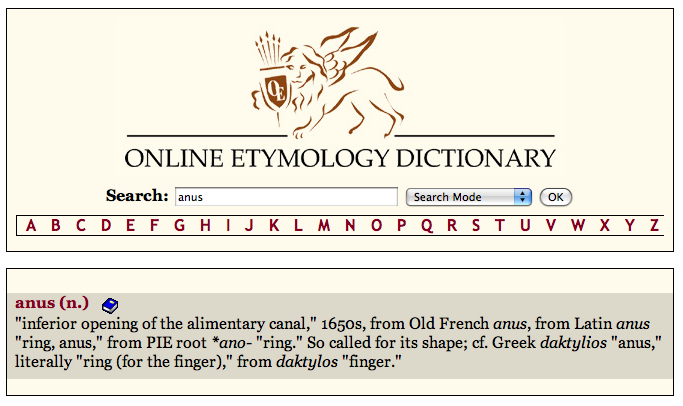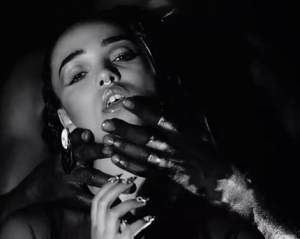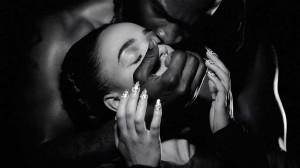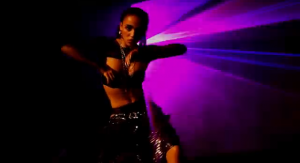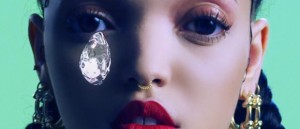Shot & a beer back
In case you missed it (I almost did), “On Smarm” is an important essay.
Speaking of the Believer, do you remember that Philip Seymour Hoffman interview? I will miss him. That seems strange though, even impossible, because that Philip Seymour Hoffman, the one I know, exists in images projecting from themselves. And those will go on sparkling, like prisms in post-loop pulse ad infinitum.
Subscribe to Mathias Svalina’s Dream Delivery Service

For only $40
you can have
your dreams
delivered to you
every day in June,
via that brillig slithy tove
Mathias Svalina,
his vorpal sword in hand.
WHILE SUPPLIES LAST, YOU BETTER GET IT!!!
February 8th, 2014 / 12:02 am
A Field in England in the US
A Field in England is finally getting a US release, starting today. It was probably my favorite new film of 2013, and it certainly contained my favorite scene of 2013 (the tent scene—watch at your own risk!).
Drafthouse Films is releasing it in select cities (but not Chicago, boo, hiss). It’s also available for digital download.
I’ve seen this movie maybe four times already, and you better believe I’ll be watching it again. And somewhere I have a mess of notes on it that I keep meaning to type up into something semi-coherent…
DON’T START ME TALKIN’ by Tom Williams
 Don’t Start Me Talkin’
Don’t Start Me Talkin’
by Tom Williams
Curbside Splendor Publishing
220 pages / $15.95 Buy from Curbside Splendor
People put on different fronts every day for different reasons—maybe for work, romance, or as a means to escape themselves—and some perhaps do it unwittingly while others do it with great care. In Williams’ immensely satisfying novel, musicians Wilton and Peter are of the latter variety, slipping in and out of their respective personas as the salty True Delta Blues veteran Brother Ben and his harp (harmonica) playing young partner Silent Sam. Narrated by Peter—an educated man who, when playing the part of Silent Sam, can barely read—the story brings the reader on what might be the duo’s final North American tour. Whether they’re giving interviews or playing small venues on college campuses, Wilton (who plays golf on the sly and is ten years younger than his slumped and sleepy alter ego Brother Ben) and Peter must cling to their contrivances and the deep, often fictitious mythology that’s brought them to this point. As Brother Ben and Silent Sam, they’re giving audiences—largely made up of white, nerdy, academic fanboys—and critics what they want: genuine purveyors of the blues, hard-living men who’ve risen from squalor with music both heart-wrenching and hopeful. For five years, Wilton has taught Peter how to play the part, how to dress, eat, and speak when in the public eye, and Peter sometimes wrestles with this willful dishonesty and how it affects his worldview: “When you spend so much time being someone you’re not, you suspect everyone’s got a con.” The reader sees Peter’s strained relationship with his family, his mother lamenting she doesn’t know who her son is and worried this Silent Sam character is taking over. She wants Peter to lead a normal life, or a life with which she can better identify, and Peter too struggles with this same desire to give up the charade that’s allowed him to do what he loves. Peter and Wilton love playing the blues, and they play the blues so well they’ve been invited to the Beale Street Blues Awards in Memphis where they’ve been nominated for Best Traditional Artist. Whether they’ll win or not is anyone’s guess and maybe the achy and proud persona of Brother Ben could care less either way: whatever happens will sear itself into the mythology Wilton seems to love nearly as much as the music. Beale Street is just one stop among many on this fantastic ride that gains momentum as their tour progresses and Williams keeps perfect rhythm with everything he sets in motion: the identity conflicts, the grind of the tour, the danger of being discovered as frauds, and the questionable future of the duo. Through the amiable voice of Peter, Williams guides the reader from the passenger seat of the duo’s styling ’76 Fleetwood Brougham, to the ephemeral privacy offered by a hotel room, to the damp hardwood of the stage: “And when it seems we can’t push past the limits True Delta Blues imposes on us, Ben says, ‘Blow Sam,’ and allows me a solo of two choruses. I push those notes around like they looked at my woman and need a reminder not to try that shit again.” Tense, thoughtful, and funny, this novel will leave readers floating from the show, ears ringing and hearts racing. (February 2014)
***
Mel Bosworth is the author of the novel FREIGHT.
February 7th, 2014 / 10:00 am
8 Ways to Make Book Readings Awesome

Honestly, I love books more than money, sex, or bourbon. But book readings are often a pretty lame way to spend an evening. They’re pompous, silly, poorly planned, and excruciatingly dull. They accomplish nothing. And the majority of people who come to book readings have already read the book so it’s not even like they’re good marketing ploys.
Reader-friends, it doesn’t have to be this way! Books are awesome, most authors are engaging, intelligent people, and bookstores are certainly the fun places we all love. Therefore, let’s bring our noggins together and think up a bunch of ways to turn these indomitably boring events into lively festivals of literary hoopla and excitement. Let me start us off with 8 suggestions:
#1. No introductions – This will cut down the pomp by a solid 50%. No blathering adulations or list of prizes. Just say the author’s name, a book title or two, and get the show on the road.
#2. Don’t let the author sit down – Get kinetic, Orhan Pamuk! Let’s move it, Lydia Davis! Shake that money-maker a tad Marilynn Robinson! Give us some energy and zest. Do a little hula and shimmy shimmy. No chair, no podium, no hammock or beanbag contraption to rest your writerly body on. Instead move around and hell, if the energy sags, do what the jazz musicians do and improvise a sentence or two.
#3. Shout “BAM” before turning each page – “The instant her voice broke off, ceasing to compel my attention, my belief, I felt the basic insincerity of what she—BAM!!!—had said. It made me uneasy, as though the whole evening had been a trick of some sort to exact a contributory emotion from me.” That’s right, read it, Fitzgerald!
#5. Gesticulate rabidly, do 10 minutes of reading max, and if the reading gets boring accept the occasional heckle – “Hey Cheever, you suck tattersal cock!”
#6. End by telling us a local anecdote, good bookstore memory, or about your literary arch-nemesis – This will help personalize the event. A little showmanship goes a long way in creating a compelling public experience.
#7. Don’t let that person in the audience ask questions – This is BY FAR the most important suggestion because you know EXACTLY who I mean. We can’t let this person hijack the show. Have courage, bookstore employees! Even if the question-asker is a regular who always buys hardcover, tell them the gag order’s in effect for the common good of everyone else. We thank you greatly.
#8. Serve booze or juice and light snacks afterward – It’s why people love art events, the free wine and Triscuits. Somebody could take a dump on the floor of his sublet and so long as there was two-buck chuck, Cheese Nips, and a trendy promotional flyer loads of people would come to view it. Food equals turn out. Turn out equals energy and press. Also, free Ritz crackers and tiny paper cups of wine will get people to stick around and probably buy the author’s journeyman collection of short stories.
Now these suggestions are just Part 1. Part 2 involves more excitement and maybe violence. We need to take dramatic steps to invigorate today’s literary players so they’ll create engaging personae, which will outlive them. We need a new flock of writers to replace the likes of Norman Mailer, Lillian Hellman, Gore Vidal, and Hunter S. Thompson.
At AWP this year, the coordinators should host off-site events to keep everybody on their toes. Perhaps a charity boxing match between Colson Whitehead and Richard Ford. Or a street rumble between people who like prose poems and the rest of the world. Somebody can take a folding chair to Gary Shteyngart’s face WWF style. I’d pay money to see that. Violence and fiendishness are, weirdly enough, sometimes useful shortcuts to developing literary personae. Let’s make this thing memorable. BAM!!
***
Alex Kalamaroff is a 26-year-old writer living in Boston. He works on the administrative team of a Boston Public Schools high school. You can read his other writings here or follow him on twitter @alexkalamaroff.
WTF Is Happening In My Shower?
Inspired by Adam Robinson’s exegesis of his own shower (pleasure dome) and Melissa Broder’s shower (chant silo) peek-a-boo, here’s my shower: READ MORE >
25 Points: Big Sur
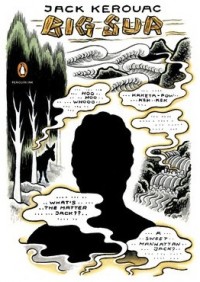 Big Sur
Big Sur
by Jack Kerouac
Penguin Ink, 2011
224 pages / $12.84 buy from Amazon
1. The movie, based on Jack Kerouac’s book, based on Big Sur, 36.1075 °N, 121.6258 °W.
2. Voiceover beginning to end, front to back.
3. I think of all the times I’ve been to Frisco, ages 5, 6, 7, 9, 9, 9, 11, 20, 21, 22, 23, 24 and 28. I think of City Lights, North Beach, Sea Otters, Strip Clubs, Merry-Go-Rounds, Mirrored Ceilings, Fake IDs, Suspension Bridges, Soccer, Coffee and Bread.
4. Boredom. On my fifth birthday there were too many children and too many presents. In the backyard my father starred in Oscar the Grouch’s Cooking Show. He juggled raw eggs and ate tuna fish/jellybean/sauerkraut sandwiches. There were words the whole time but nobody talked.
5. Iodine blast. Iodine: A novel by Haven Kimmel from a song by Leonard Cohen from iodine, I, atomic number 53. From my mother’s skin before I was my mother’s.
6. Big Sur: A descent into madness, a portrait of hell, a catalogue of imperfections.
7. When I read the intimate details of our lives out loud it hurts less.
8. Things included but not mentioned in this essay: words, cigarettes, stars, beer, wine, whiskey, sand, waves, women, rhymes, slow motion, flames, bottles, trees, water, haze.
9. City Lights is my second favorite bookstore in America. Anthony Edwards as Lawrence Ferlinghetti. Anthony Edwards as Dr. Mark Greene in ER, the longest running primetime medical drama until it wasn’t. Dr. Mark Greene eating a Chicago Hot Dog over the Chicago River on a break from Chicago’s Cook County General Hospital. When I eat a Chicago Hot Dog over the Chicago River I think of Sandra Bullock, not Lawrence Ferlinghetti. I never liked ketchup.
10. FACT: Second movie I’ve seen in two weeks about the beats. Third movie on Jack I’ve seen in five years. READ MORE >
February 6th, 2014 / 4:45 pm
oops!…i did it again: i cant remember to forget you (FKA MEANINGFUL)
I. Two Days After Whateverdaythegrammystookplacethisyear
I was taking about sex with a new person when I said I was annoyed choking is not on the table as an option. Then I said my ex’s name and remembered how she loved it.
“Oh, I know,” came his Freudian drip. I then punched him pretty hard on his arm, but without being violent. I was kind of upset, but I also knew he didn’t mean to hurt me, his tongue just worked faster than his brain in that moment.
The weird thing is, Billy was probably the victim in all of this. During a time we were trying to be over I surrounded myself with friends who weren’t shared, friends who didn’t let me respond to her manic pleas for reciprocity. So I saw the blocks of texts arrive, and I ignored them, but not because I wanted to ignore them. I was still forcing myself to not respond. That’s when it happened. I know because we eventually got back together and she never told me. But one day I went through her phone and saw her bragging texts about Billy and how he fucks like a rabbit and how the best part of it was that Billy was my good friend. She was bragging about it, but how unfortunate was that? She, who I successfully ignored, intentionally turned to someone else to hurt me for ignoring her. “Positional play is the maneuvering of opponents into the forced clarification of their (but not your) tactical lines of action,” and that was what she was doing. But we all got played in the end, thankfully including her.
Sometimes we do things for unclear reasons. Maybe because they feel good. Is that a reason? I think so, especially when I do the things. Is it worse when the sex is perfect with an idiot or when the sex is boring with a genius? I dunno, but I hope to have less of it and try to make it meaningful.
There is this mix I was listening to recently and it is very good, but I have a problem with it: it closes with a juxtaposition of Justin Timberlake’s “Cry Me A River” and Britney Spears’ “Everytime.” Hopefully, I need not clarify why that poses a problem, but if I must let me say I have a problem with myself for feeling sorry for Britney, when she was the one doing things for unclear reasons because they felt good. “This song is my sorry,” is a fucked up lyric to be used in a pop song when it is truly personal, and in Spears’ case at that time it was. [1]
You might remember my friend “Billy?” You probably don’t, so here. We grabbed lunch together last week, it was pretty fun. We got Ramen and talked about stuff on a broad scale: the things we are doing for money, the people we have been getting naked with and, naturally, cultural ephemera. An ephemeron we addressed for example was the Grammys ceremony and how we felt about some of the performances and awards. Of course neither of us was able to watch past the first half, or perhaps nothing of note happened in that half. We shall never know!
What we do know: Billy is dating someone seriously, and she is taking him a lot more seriously than he is her. She is “intense” and “confrontational.” She senses what they both know. Basically what he is saying is that he is not up for it. He likes her, but she feels for him in ways he doesn’t. I tell Billy to tell her that he knows her intuition is right. To stop playing along and pretending he doesn’t see what she is right to notice their “thing” is missing.
Must we pass over in silence what we cannot speak about?
II. Whateverdaythegrammystookplacethisyear
THE *REAL* GRAMMYS, HAPPENING EONS BEFORE THE SUPERBOWL
I watched them with my friend who will not be told when she must cease thinking about Beyonce’s net shorts. (“i hate how everything moves so quickly. it’s like just because a few days have passed doesn’t mean i’m not still thinking about the grammys. sure, not MOST of the grammys. but i’ll be thinking about her netted costume for a WHILE. why does the internet want everyone’s brains on fast forward?”)
I could not believe how fortunate it was that I happened to be near a television! I was casually complaining about life to a dear friend on a Whateverdaythegrammystookplacethisyear when all of a sudden… Beyonce! I never fully get how award shows work, their purpose and how the selection process works for who gets nominated for what. But if they start with Beyonce, I am totally mesmerized and willing to watch with full attention and the occasional loud “OH MY BEYONCEEE!” There were multiple of those, and people on the receiving end of Beyonce’s electric chair were electrified, as expected, jumping up and down their couches everywhere, unless they lived on the West Coast, and thus were penalized for their decision .
The *Real* Grammys seem to be organized by a panel of Ladies… who Love Cool J. Why is he the presenter? Why do they keep Doin’ It (feat Leshaun)? The sartorial negligence of the Cool James was apparent as he momentarily shared a stage with an immaculately dressed First Husband of America. Let’s just say there were no ZZZs in Jay-Z’s perfect outfit, and even less ZZZs were there to be found in the way the Presidential couple looked like while performing together during the *Real* Grammys, intoxicating everyone with their intoxication.
The deep blue sea of sartorial hmmms deepened further when our favorite Neptune decided to hide his crown under a hat, and all of humanity wondered: “Pharrell. Why!” He was still perfect, and at least wasn’t being ridiculous like those dudes who must have been sweating balls in their anonymity protecting helmets.
But looks and looking supa dupa fly are not all that matters in music these days. The young musicians have set up the bar mad high, where only Lordes can fly, and your prepackaged Dark Unicorn won’t fly you there despite its hypnotic beat (gah, this hasn’t happened to my brain (?) since when Gwen Stefani was cheerleading) that encourages obsessive repeat-play.
If the producers of your album aren’t Illuminati, you might have to join a circus. In the words of pop-princess (does she keep being princess until Madonna dies?) Britney Spears: “There’s only two types of people in the world: the ones that entertain, and the ones that observe.” Pink misunderstood the distinction and thought being observed was synonymous to entertaining, but acrobatics are all the ZZZs Jay-Z was missing that night. Except for her thigh strength, which so wow, very anti-ZZZ!
[*serious-y chunk*]
Anyway, time to get serious-y. Let’s address the thing that agitated most of us about the *Real* Grammys: Kendrick Lamar—who was, is and will always be objectively the best in everything for which he was nominated—didn’t win anything. Then the band (is Macklemore a band? or just that dude with the two-year old Freeman’s Alley barbershop hair a solo thing?) made the crass, gross error of trying to recognized their (his?) inferiority by sharing the thought with all their fans. This literally felt like a violent slap to everyone: (1) the people who might have thought Mackleduders deserved to win stuff, (2) the people who wanted Kendrick to win stuff and were frustrated he didn’t, and (3) let’s not even think about all the other very sensitive and insecure artists who were both nominated and lost and not even publicly recognized by the true winner of stuff they lost as the ones worthy of winning.
To think this band (or dude? I really have to find out at this point!) would even consider considering publicly sharing a private message he sent which should have been private, because eww band or dude, get a publicist! The negative criticism they (or “he,” whichever is correct!) have received is totally deserved. Bad apologies are in poorer taste than not apologizing at all, and this one was a very selfish and self-aggrandizing one. The reason this “apology” really sucked was the way it was portrayed and whored out via social media. There is a Kendrick song called “Real.” It is greatly introspective and reflective, further showing where in the “real nigga” doctrine Kendrick falls: he is not obsessed with appearances in a way consuming his music’s production.
The song stresses the importance of showing up, of being “real” in a way that is vulnerable:
The reason why I know you very well/ cause we have the same eyes can’t you tell?/ the days I tried to cover up and conceal/ my pride, it only made it harder for me to deal
[*end of serious-y chunk*]
Speaking of #Unapologetic, sources close to the Barbadian queen of pop Rihanna have revealed to TMZ the star watched the show at the comfort of a new planet she recently purchased. While she is considering Stay-ing there a while, TMZ has learned that Rihanna used telepathy to support her bestie (hmm. Cara?) close friend Katy Perry during her Grammys performance. “Where have you been?” thought Katy in the secret illuminati witchlanguage she shared with Rih, and then she felt the transcendental high-five from afar.
Then everyone bought things and companies were so, so happy! Well, almost everyone bought things. Mostly women who wanted to wear all the beauty products that made their stars look like stars. Men would have to wait for a sports event, like last year’s Beyonce performance at the sports thing which made Janet Jackson a star.
In conclusion, the *Real* Grammys didn’t really change anything, but that’s okay. Because the Grammys rarely do that. It is mostly public opinion that shapes who the big figures are in culture, and all the individuals who are nominated for these awards have acquired a level of respect as artists significant enough to see Taylor Swift going hard to Kendrick live, which is fine and great and super, but remains besides the point. When our cultural curators shift our attention to something silly, even if this silly something is endearing and well-intentioned, they (the curators) have taken our attention away from something else.
Who chose the direction to focus on Swift—and more extensively—before showing us an enthusiastic Hova? Probably the same exact person who gave Macklemore the award. It wasn’t me. But if it were me directing, I would have focused on the performance exclusively, out of respect to the person on stage. If a majority of the population only likes stuff because other people like it, then please save the stuff I like from getting Grammys!
III Nine Days After Whateverdaythegrammystookplacethisyear
He felt sad, he said. It was the morning after he stopped hating himself for being kinda in the gray area for so long in private. The night before he had send me a text: “It’s over. A little back and forth but we both agreed it was checkmate. Broke up in Central Park, lol. It went so well/ was our first real convo. Probably the best convo we ve ever had. I feel surprisingly sad.”
I was really proud of him. And of me, for challenging him to be upfront about his lack of genuine want in his relationship. But I also felt meaningless. I wasn’t even able to arise in my person the decency Billy was finally able to come up with for his new ex.
Whereof one cannot speak, thereof one must be silent, I guess.
NOTES
[1] I know this with certainty, because this was the first song Spears wrote. She wrote it with a woman named Artani, who then went on a Greek reality-talent show, called “Fame Story,” which everyone in Greece watched at the time because we were trying to not focus on our faltering institutions as a nation.
Artani was dealing with a breakup while Britney was trying to face the new Justin Timberlake as an ex, who had released “Cry Me A River.” The song was personal, and “Everytime” was a vulnerable response to it, but how vulnerable was it really, when it was a pop song and it was created for everyone? Doesn’t that take away from it in serving a purpose as being a meaningful apology? I think it did/ does/ forever will.

